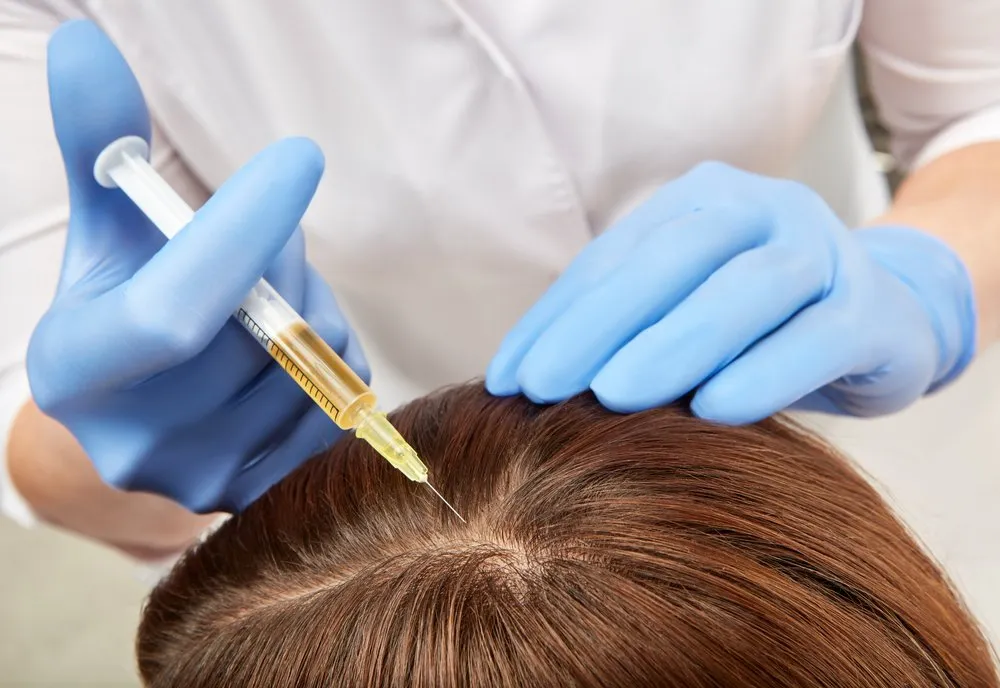If you’re dealing with autoimmune-related hair loss like lichen planopilaris or lupus, you may have come across hydroxychloroquine for hair loss as a potential solution. This medication, originally used for malaria and autoimmune disorders, has shown promise in slowing or reversing hair loss caused by immune-related scalp inflammation.
In this article, we’ll explore how hydroxychloroquine works, who it’s for, its benefits and risks, and how to decide if it’s right for you. Backed by expert insights and real cases, this guide will help you make informed choices with confidence.
What Is Hydroxychloroquine?

Originally Used for Malaria and Autoimmune Conditions
Hydroxychloroquine is an antimalarial drug that has also been widely prescribed to manage autoimmune diseases like systemic lupus erythematosus (SLE) and rheumatoid arthritis. Its immunomodulatory effects make it valuable in treating inflammatory conditions.
How It Works in the Body
Hydroxychloroquine reduces inflammation by decreasing the activity of the immune system. It interferes with the communication between immune cells, preventing them from attacking the body’s tissues, including hair follicles, in autoimmune disorders.
Why It’s Being Considered for Hair Loss
In autoimmune hair loss conditions like lichen planopilaris (LPP) or discoid lupus erythematosus (DLE), the immune system mistakenly attacks hair follicles, leading to scarring alopecia. Hydroxychloroquine may suppress this immune activity and preserve hair growth.
Can Hydroxychloroquine Help with Hair Loss?
Mechanism of Action on Hair Follicles
Hydroxychloroquine helps prevent immune-mediated destruction of hair follicles. It slows down inflammation in the scalp, potentially halting hair thinning and improving density in areas where follicles are still viable.
Evidence from Autoimmune Hair Loss Conditions
- Lichen Planopilaris: Studies have shown that hydroxychloroquine can reduce symptoms like burning, redness, and hair shedding.
- Discoid Lupus: Patients using the drug often report reduced scarring and stabilization of hair loss.
What the Research Says
Although research is still limited, small-scale studies and case reports support its use:
- A study published in the Journal of the American Academy of Dermatology found that hydroxychloroquine improved disease activity in 75% of LPP patients.
- Other reviews note its value as a second-line treatment when topical therapies fail.
Who Might Benefit from Hydroxychloroquine?
Autoimmune Hair Loss Sufferers
This treatment is most effective for patients diagnosed with:
- Lichen planopilaris (LPP)
- Discoid lupus erythematosus (DLE)
- Frontal fibrosing alopecia (FFA)
These are types of scarring alopecia, where early intervention is key.
Cases Where Conventional Treatments Fail
Patients who don’t respond to topical corticosteroids, calcineurin inhibitors, or minoxidil may benefit from hydroxychloroquine as a systemic approach.
When It’s Not Recommended
- Individuals with non-autoimmune hair loss (e.g., androgenetic alopecia or telogen effluvium)
- Pregnant or breastfeeding women
- Patients with pre-existing retinal disease
- Anyone with a known hydroxychloroquine allergy or G6PD deficiency
Always consult a dermatologist for diagnosis and prescription.
How Long Does It Take to See Results?
Typical Timeline Based on Clinical Data
Hydroxychloroquine works slowly. Visible improvements typically occur within:
- 3–6 months: Reduction in scalp inflammation, less burning or itching
- 6–12 months: Slowing or halting of hair loss, potential regrowth if follicles are intact
Before-and-After Expectations
Hydroxychloroquine doesn’t reverse scarring, but it can:
- Preserve remaining hair
- Slow progression
- Improve quality of life by relieving symptoms
Factors That Influence Effectiveness
- Severity and duration of disease
- Early diagnosis and intervention
- Adherence to treatment and monitoring
- Use alongside topical or intralesional therapies
Risks, Side Effects, and Warnings
Common Side Effects
- Nausea or stomach upset
- Headaches
- Skin rashes
- Dizziness or blurred vision
Most are mild and resolve with continued use or dosage adjustment.
Serious Risks (Rare but Important)
- Retinal toxicity: May lead to vision damage with prolonged use. Requires annual eye exams.
- Heart rhythm issues: QT prolongation in rare cases.
- Liver or kidney function impact (in patients with pre-existing issues)
Patients must undergo regular blood and eye tests.
Drug Interactions and Precautions
Avoid concurrent use with:
- QT-prolonging drugs (e.g., certain antibiotics, antidepressants)
- Methotrexate or other immunosuppressants (without monitoring)
- Alcohol in high amounts
Alternatives to Hydroxychloroquine for Hair Loss
Topical Minoxidil and Oral Finasteride
- Minoxidil: Works well for androgenetic alopecia, not effective in scarring alopecia
- Finasteride: For male-pattern hair loss only
PRP and Stem Cell Therapy

- PRP can promote healing and regrowth
- Limited use in scarring conditions, but helpful as an adjunct
Hair Transplant Surgery
- Only effective when scarring is stable
- Requires careful planning and scalp assessment
Natural or Supplement-Based Options
- Biotin, saw palmetto, and iron supplements
- Low risk but limited evidence in autoimmune cases
Is Hydroxychloroquine Right for You?
Checklist: Signs You May Be a Candidate
✅ Diagnosed with LPP or DLE
✅ Symptoms persist despite topical treatment
✅ Non-responsive to minoxidil
✅ No contraindications for hydroxychloroquine
✅ Willing to undergo regular monitoring
Questions to Ask Your Dermatologist
- Is my hair loss scarring or non-scarring?
- What are the risks of long-term use?
- How will we track treatment success?
Shared Decision-Making in Treatment Planning
Discuss your goals, expectations, and side effect concerns with your dermatologist. Personalized care increases success and safety.
Frequently Asked Questions (FAQs)
Is hydroxychloroquine FDA-approved for hair loss?
No. It is not FDA-approved specifically for hair loss, but it is often prescribed off-label for autoimmune scalp disorders.
Can it regrow hair permanently?
It can slow or stop progression and encourage regrowth if the hair follicle isn’t fully destroyed. It does not reverse scarring.
What happens if I stop taking it?
Hair loss symptoms may return if underlying inflammation reactivates. Always consult your doctor before discontinuing.
Can it be used with minoxidil or finasteride?
Yes, especially in mixed alopecia cases. However, combinations must be guided by a specialist.
Take Your Next Step
Struggling with autoimmune-related hair loss? Hydroxychloroquine might be a part of your personalized treatment plan.
Book a consultation with Dr. Rana Irfan in Islamabad today to get an accurate diagnosis, explore safe treatment options, and receive expert care every step of the way.
